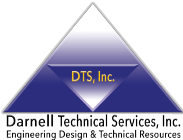Technical expertise is often the primary focus when assembling engineering teams or spearheading large-scale projects. While in-depth knowledge and specialized skills are undoubtedly critical, overlooking the human element of engineering teams can negatively impact performance and outcomes. Communication, leadership, and collaboration—the so-called “soft skills”—are pivotal factors that shape the success of engineering projects. Here’s why these skills are just as essential as technical know-how and how they contribute to stronger, more effective teams.
The Role of Soft Skills in Engineering Success
Engineering talent is not defined solely by coding prowess, design expertise, or analytical acumen. Large-scale engineering projects often require cross-disciplinary teams to work together seamlessly despite varied technical backgrounds. Soft skills provide the foundation for this integration, facilitating clearer communication, stronger leadership, and innovative problem-solving.
Communication Enables Clear Project Execution
Miscommunication in engineering projects can lead to catastrophic delays, budget overruns, and even technical failure. Engineers must translate highly complex issues into actionable information for diverse stakeholders, including clients, team members, and organizational leaders.
For instance, consider the case of a civil engineering firm constructing a major infrastructure project. When an engineer effectively communicates design updates to a project manager and the client, it ensures alignment on project goals and prevents misunderstandings that could derail progress. Effective communication also empowers team members to share ideas during brainstorming sessions, enhancing overall workflow efficiency.
Leadership Drives Team Performance
Strong leadership is another essential human skill in technical teams. Engineering managers who lead with empathy, clarity, and adaptability can inspire their teams to maintain focus and commitment—even during challenging periods of a project. Strong leaders don’t just assign tasks; they set a clear vision for the team and foster a sense of accountability and ownership among members.
For example, during the development of a new software product, a manager who encourages team feedback and is willing to adjust plans based on input will likely reduce friction within the group. This approach builds trust, energizes motivation, and encourages diverse perspectives that often result in innovative solutions.
Collaboration Enhances Cross-Disciplinary Efforts
Modern engineering projects often span multiple disciplines, emphasizing the importance of collaboration. Engineers in specialized fields such as mechanical, electrical, or software engineering must work hand-in-hand to complete interconnected systems.
Take the aerospace industry as an example. A successful aircraft design depends on effective coordination between teams of structural engineers, avionics experts, and materials scientists. Collaboration ensures that each component integrates seamlessly into the final product and can withstand rigorous performance tests. Without collaborative skills, even highly talented individuals may struggle to contribute to cohesive project outcomes.
Recruitment and Management Strategies for Soft Skills
When recruiting engineering talent, it is essential to look beyond technical qualifications and evaluate soft skills during the hiring process. Behavioral interview questions, group assessments, and real-world problem-solving exercises can help identify candidates with strong communication, teamwork, and leadership abilities.
Once onboarded, team management practices should actively reinforce soft skills development. Mentorship programs, regular workshops, and open forums for peer feedback encourage team members to strengthen interpersonal abilities. For instance, hosting monthly cross-disciplinary meetings where engineers present ongoing project aspects can build bridges between different departments and improve overall collaboration.
Soft Skills in Cross-Disciplinary Collaboration
Cross-disciplinary collaboration is critical for achieving success in complex engineering projects, particularly in industries like infrastructure development, automotive design, and renewable energy. Engineers with a balance of technical expertise and interpersonal skills can better align with other departments, including marketing, procurement, and client relations.
A notable example is the adoption of Building Information Modeling (BIM) practices in construction. BIM fosters collaboration between architects, engineers, and contractors by aligning their efforts within a shared platform. Engineers who possess collaborative abilities can leverage tools like BIM not just as a technical solution but also as a means to unify team goals and achieve delivery timelines.
Building High-Performance Teams
To build robust and efficient engineering teams, leaders must foster a culture that values both technical expertise and soft skills. Recognizing individual contributions, promoting open communication, and celebrating team achievements can create an environment where engineers thrive. Additionally, investing in technical staffing firms that understand the importance of soft skills can ensure access to pre-vetted talent who mesh well with organizational goals.
The Competitive Advantage of Prioritizing Soft Skills
Engineering managers, technical project leaders, and operations directors who recognize the importance of communication, leadership, and collaboration skills gain a competitive edge. Projects run more efficiently, teams become more cohesive, and companies ultimately see stronger ROI. Engineering is not just about solving technical challenges; it’s about solving them together, leveraging the collective creativity and expertise of talented individuals.
Looking for Trusted Technical Talent or Project Support?
At Darnell Technical Services, we connect companies with skilled professionals in engineering, architecture, and infrastructure. Whether you need temporary staffing or long-term project support, we’re here to help you succeed.
📞 Contact us today at Corporate (714) 285-0082 or Las Vegas Office (702) 829-8446 — let’s build something great together.








